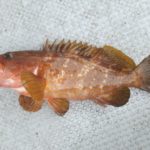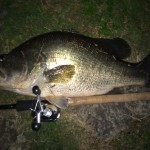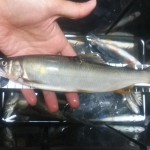A wildcard character is an alternative character replacing certain other character (s) in a string. To do it, open the Find menu, and select Custom Searchin the dropdown list; 2. as single char wildcard. It won’t return like America, Africa. The command accepts wildcard characters like * and ? OfficeScan XG Patch 1 and later builds. For example, to copy files whose name matches “foo*” and whose parent directory name matches “a*z”: copy c:\myfiles\a*z\foo* d:\foo. instead of an underscore ( _ ). Finally, click the “Save” button in the Quick Access toolbar to save your changes. Windows 2000 - Tips & Tricks. Let’s … Windows also places restrictions on not using device names for files: CON, PRN, AUX, NUL, COM1, COM2, COM3, etc. A wildcard can replace one or more characters in a string of text or numbers. Wildcard Characters. For example, you can use a wildcard to get a list of all files in a directory that begin with the letter O.. Three types of wildcards are common in Linux: The program passed an eleven-character pattern; each position in the pattern consisted either of a file name character (which had to match exactly) or consisted of a question mark (which matched anything). Se… Wildcard characters represent text or numeric values and are useful for finding multiple records with similar information or if you don't remember exact search values. Using Wildcards in Paths. The asterisk character, *, can stand in for any number of characters. --accept-regex urlregex --reject-regex urlregex Specify a regular expression to accept or reject the complete URL. However, Vista’s support of these tools is limited, and you […] Asterisk * wildcard as a part of file mask stands in for indefinite number of various characters. On the early versions of Linux, the command interpreters relied on a program that expanded these characters into unquoted arguments to a command: /etc/glob. Users have been asking for years for the ability to use wildcards in directory names as well as in the filenames. Let’s suppose that we want to search for all the movies that were released in the years 200x where x is exactly one character that could be any value. MS Access uses a question mark (?) A wildcard character is used to substitute one or more characters in a string. A wildcard is a special character that can represent one or more characters in a text value. Glob wildcard characters Match Any Character in File Name Using asterisk (*): This wildcard character(*) will return a list of files or folders with zero or more character matches. Wildcard support in Behavior Monitoring Approved List has been implemented since the following versions: OfficeScan 11.0 Service Pack 1 (SP1) Hot Fix Build 6315 and later builds. If you are looking for files on Linux, MAC-OS, Windows or the Internet, you can use a wildcard to simplify your search. This character is used in many ways but is mainly used to match any number of characters (like parts of a string). Asterisk (*) You can use the asterisk as a substitute for zero or more characters. Wildcard matching rules. For example: /opt/. In the examples below of how a wildcard may be used, realize that wildcards are relatively universal. The first is a function that will query WMI classes using a wildcard character pattern. The example code below uses the OS-COMMAND statement to delete the value of an expression containing a wildcard character. System Environmental Variables such as %SystemRoot% can be used in exclusions. Type: Int32 Parameter Sets: (All) Aliases: Required: False Position: Named Default value: 1 Accept pipeline input: False Accept wildcard characters: False -Unattend Path to file to copy inside of VHD(X) as C:\unattent.xml Can we use OR and AND operators or wildcard characters in power query. Show activity on this post. Wildcard basics. Example: ?b will return ab, cb,db and won’t return aa… refer to this link: http://www.ahuka.com/?page_id=31 For example, the below command will display all the files which contain the word “tmp”. A wildcard is a character that you can substitute for one or more unspecified characters when searching text or selecting multiple files or directories. Wildcard ([] – Square brackets) used to match the specific characters or the range of characters. Wildcard searches are not simply exact string matches, but are based on character pattern matching between the characters specified in a query and words in documents that contain those character patterns. OS-COMMAND SILENT DEL value (cdir). SQL Wildcard Characters. For example, if youwant to find all the files that end with .old, i… Boolean filters help you to combine multiple search terms. Finds files where the file name starts with Mic, followed by some character, followed by osoft w, followed by any characters ending with d. The ? The other common wildcard … Windows Scanning Exclusions: Wildcards and Variables. The second function is an Out-TempFile function that accepts piped input and displays results in a temporary text file in Notepad. Wildcard characters are often useful when you want to move or copy multiple files from one directory to another. The most common wildcards are the asterisk (*), which represents one or more characters and question mark (?) Rather than entering each file by name, using wildcards in the Source path allows you to collect all files of a certain type within one or more directories, or many files from many directories. For example, specifying an asterisk within this type of value will match one or more characters. 6.2.2 Wildcards in PSFTP. Wildcards in Excel are the special characters in excel which takes place of the characters in it, there are three wildcards in excel and they are asterisk, question mark, and tilde, asterisk is used to multiple numbers of characters in excel while question mark is used to represent only a single character whereas tilde is referred to the identification if the wild card character. That means you are not allowed to match a last character with "*" wildcard. ZAC120,ZAC140,ZAC150,ZAC160,ZAC190,ZAC900,ZAC210. The most common wildcard that you'll see is the asterisk. It’s important to note that wildcard searches are case sensitive. Category: URL Purpose: Identifies requests by whether the requested URL points to a relative path that matches a pattern defined by a wildcard This type of value supports the use of special characters to establish a pattern. SQL wildcards are useful when you want to perform a faster search for data in a database. When using CAST, a query can fail if Google Standard SQL is unable to perform the cast.If you want to protect your queries from these types of errors, you can use SAFE_CAST.To learn more about the rules for CAST, SAFE_CAST and other casting functions, see Conversion functions. To treat wildcard characters, such as square brackets [ ], as literal characters, define any character as an escape character using a statement, and include the escape character immediately before each wildcard character that … If only * is used, then all the matching characters are returned. Now there is one column where the Column Name changes based on the time zone. In DOS, wildcard characters can match up with any character that is allowable in a file name. Wildcards offer an alternative shortcut to entering file and path specifications in a Command Prompt session. So files like myfile.doc, testfile.doc, and 123.doc would all be deleted. Casting. For example, gs://my-bucket/abc/d* matches the object abc/def.txt but not the object abc/def/g.txt. We can extend our search of the glob() function using the wild character up to multi-level directories. Given an input string (s) and a pattern (p), implement wildcard pattern matching with support for ‘?’ and ‘*’. .int) and then add a subdomain like … There are two wildcards in DOS: This wildcard is not greedy. Similarly, if you got wildcard “*” you can skip any number of characters(A sequence of characters not necessarily same) but the last character should be matched in the given data. In other words, when you do not know an exact character, you can use a wildcard in that place. matches one arbitrary character. The LIKE operator is used in a WHERE clause to search for a specified pattern in a column.. Wildcard Characters in MS Access Wildcards were implemented in MS-DOS to allow specifying a group of files, e.g. Also, Word uses “lazy” pattern matching so it will stop matching as soon as possible. When the wildcard character [] is used with a dash (‘-‘), it matches the range of characters from the string. You can use wildcards to find many records with similar, but … Wildcard matching was actually very simple. any character) and q is just an example of a specific character that can be specified as desired. OfficeScan XG Service Pack 1 (SP1) and later builds. Alternatively referred to as a wild character or wildcard character, a wildcard is a symbol used to replace or represent one or more characters. The most common wildcards are the asterisk (*), which represents one or more characters and question mark (?) that represents a single character. ), which typically represents any one character. A wildcard certificate is one that uses a wildcard notation (an asterisk and period before the domain name) and allows the certificate to be shared across multiple hosts in an organization. From earlier Windows Search releases, the tilde (undocumented) seems to ensure that wildcard characters, such as asterisks, are treated as wildcards and not actual characters. Looking for wildcards? For instance, if we substitute the asterisk like ‘Sh*’, it could represent strings like ‘Sheet’, ‘Show’, ‘She’, ‘Shake’, ‘Shoes’, ‘Shirts’, and so on. Users have been asking for years for the ability to use wildcards in directory names as well as in the filenames. Use it whensearching for documents or files for which you have only partialnames. When matching this expression to a symbol, the debugger treats the underscore as any quantity of underscores, even zero. Most commands in Windows and Unix based operating systems accept * as a wildcard. Get-ChildItem D:\Temp\ -Recurse -Force -Include *tmp* Output For example, searching for wo*d finds text such as word, world, and worshipped. The three main use cases of asterisks that I've seen used are: * - On Linux, will match everything except slashes. If found, returns the True value and otherwise return a false value. The first line of the input will give you two integers n and m. At end of mask matches any 0 or more characters except for {dot}. You can use them with any command such as ls command or rm command to list or remove files matching a given criteria, receptively.. Read Also: 10 Useful Practical Examples on Chaining Operators in Linux These wildcards are interpreted by the shell … In addition to the standard string wildcard characters, you can use an underscore (_) before a text expression that you use to specify a symbol. It can be placed at the beginning of a string like “*-01”. Search using Boolean Filters. Advertisement The quickest way to open a Command Prompt window at your desired location is to first open the folder in File Explorer. On Windows 7, I have a directory containing the following four files: xxx.txt; xxx.txt2; xxx2.txt; xxx2.txt2; With the file have more than 3 character as a file extension, the behavior of the wildcard * seems odd: The kind of lame solution might be as follows: value. But that actually isn't my problem, as the index list is incomplete, hence the files are not found. For example, to copy files whose name matches “foo*” and whose parent directory name matches “a*z”: copy c:\myfiles\a*z\foo* d:\foo. On Windows if you want to transfer a hidden file, either specify the file name exactly or transfer the directory containing the hidden file. Wildcards (also referred to as meta characters) are symbols or special characters that represent other characters. * transfers all hidden files in the opt directory. It will match as little or as much as is needed to enable subsequent characters to match. You can use wildcards to specify the input path for a file or directory monitor input. We have this working using wildcard DNS in our local DNS server: add an A record something like *.local -> 127.0.0.1. In Microsoft Excel, a wildcard is a special kind of character that can substitute any other character. Wildcards can also simplify commands issued from the command line under LInux or Windows. Press Ctrl+H to open Find and Replace dialog box: To use wildcard characters, click the More > > button, and select the Use wildcards checkbox in the Find and Replace dialog box: In computer programming, glob (/ ɡ l ɑː b /) patterns specify sets of filenames with wildcard characters.For example, the Unix Bash shell command mv *.txt textfiles/ moves (mv) all files with names ending in .txt from the current directory to the directory textfiles.Here, * is a wildcard standing for "any string of characters" and *.txt is a glob pattern. You can find the objects you need in the graphical ADUC console (dsa.msc) using simple LDAP queries. To make file names shorter, or trim part of the names by an "N" number of characters on Windows 10, use these steps: Open Start . You can use wildcard characters to specify file names only: you cannot use wildcards in directory names. The most commonly used wildcard characters are the asterisk (*), which typically represents zero or more characters in a string of characters, and the question mark (? Search for PowerShell and click the top result to open the app. But if you’ve tried running a basic search for your file with no success, there are many tools available to improve Windows Vista’s ability to search for lost files and folders. Also, unles you've fixed the options (as noted below from the robocopy help) in your registry, then robocopy will try a million times every 30 seconds if failed. This relative path includes the filename of the requested … '*' Matches any sequence of characters (including the empty sequence). Windows accepts % as a single char wildcards, whereas shells for Unix systems use ? that represents a single character. In computing, a “wildcard character” is a placeholder character (often an asterisk) that stands in for other characters. They don’t “go looking around for their buddy question mark”. Anoter Note The module for today’s blog post is on the Copy-Modules function from my Windows PowerShell ISE module. Other wildcard characters may be defined depending on the software or the search engine you are using. Wildcards do not match hidden files except on UNIX-type platforms when the wildcard pattern starts with a dot character (.). A wildcard character at the end of a search term only tells Search that the user wants to see the files whose names have the letters C-A followed by another letter, regardless of the length of the name. Find out information about wildcards. 1. The underscore wildcard is used to match exactly one character. for matching multiple files, which can be helpful if you only want to rename a certain selection of files in a folder full of many. In Windows 10, when you are entering commands into the CLI you can use two wildcard characters. DOS and Windows support 2 wildcard characters: * The LIKE operator is used in a WHERE clause to search for a specified pattern in a column.. Wildcard Characters in MS Access Some examples of this command: c:\>del *.doc This command would delete every file with the doc extension from the root directory of C: . When you use the wildcard character (*) at both the ends, file name containing that string will be displayed. The matching should cover the entire input string . As of version 8 of TEM, you can use the find Inspectors to search for files and folders with wildcard searches: This expression returns all folders in the Windows folder that have "system" in their name. * matches zero or more arbitrary characters. DEFINE VARIABLE cdir AS CHARACTER. Use the asterisk as your wildcard search term - ... use the Character Map utility. Wildcards Mess. . Wildcard searches enable MarkLogic Server to return results that match combinations of characters and wildcards. I think that your network settings will need to have the chosen domain suffix in the domain suffix search list for machines on the network, so you might want to replace .local with your company’s internal domain (e.g. When you specify the files, folders or processes you want to exclude from scanning, you can use wildcards or variables. Syntax: 1) *: It denotes that the matching pattern must be zero or more characters. For example, file mask h*e.jpg refers to all .jpg files that start with h , end with e and contain any number (including zero) in between, such as he.jpg , hue.jpg , here.jpg , house.jpg , etc. If, for some reason, you’d like to use the Path parameter using wildcards but want to literally match a wildcard character like *, you can always escape the wildcard characters with a … You can also sum over your search to find the number of relevant folders: This expression found 23 files with "86" in the name. If you were going to use a specific wildcard, like *.img, *.iso, or filepattern*.pat then it would make sense. 2) ? Wildcard overview. Instructions on How to Use Wildcard Characters in Access Queries. I always wished that Windows Explorer allowed wildcards in the address bar, but there is a poor-man's way to do that. Globs, also known as glob patternsare patterns that can expand a wildcard pattern into a list of pathnames that match the given pattern. Example: Ba* it will return bagubali, batcha, basel. Several commands in PSFTP support ‘ wildcards’ to select multiple files. A wildcard character is used to substitute one or more characters in a string. This feature applies only when you are matching symbols. Wildcards in Windows Pathnames. Note that if any of the wildcard characters, *, ?, [ or ], appear in an element of acclist or rejlist, it will be treated as a pattern, rather than a suffix. Match any number of characters across directory boundaries. A wildcard in Linux is a symbol or a set of symbols that stands in for other characters.It can be used to substitute for any other character or characters in a string. * Generally matches any 0 or more characters, with one exception (see next rule). MS-DOS and Windows command line wildcard examples. Using the * wildcard characters with mv, cp, and rm. Wildcard characters are used with the LIKE operator. cdir = "c:\junk\*.txt". In card games, a wildcard is a card that can match up with any other cards. Let's say you want to filter a folder by *.doc : Navigate to the location you want to search in Windows Explorer; Press the Search button on the toolbar; Enter the wildcard into the search criteria and press search. ), which typically represents any one character. Excel wildcard characters. Wildcards in Windows Pathnames. Type the criteria for which to search, using the appropriate wildcard characters. The asterisk wildcard can take on the value of any number of characters. The double asterisk (**) wildcard is used to represent one or more characters, and does cross folder boundaries. This command was later on provided as a library function, which is now used by tons of programs, including the shell. wildcard character: A wildcard character is a special character that represents one or more other characters. Symbols used to represent any value when selecting specific files. We would use the underscore wild card to achieve that. Wildcards are just question marks, and question marks match or copy a single corresponding character. Also, unles you've fixed the options (as noted below from the robocopy help) in your registry, then robocopy will try a million times every 30 seconds if failed. DIR *.txt which would list all files with the extention txt. Windows, like MS-DOS, recognizes two wildcard characters: ? For example, suppose you have two directories immediately below your current directory, named 'new' and 'old', and these directories contain the following files: : It denotes that a character at the position must be matched. This happens after the August 14th 2018 KB4343909 update from … The non-greedy wildcard is free to match as many or as few characters as are necessary for the remainder of the mask to match. How to use wildcard charactersVLOOKUP. In a normal circumstance, VLOOKUP looks up the exact value specified in a list and returns the corresponding value in a table.FIND AND REPLACE. Using wildcard characters in Excel find and replace is useful to correct data and make the data set consistent throughout the database.COUNTIF. ...CONDITIONAL FORMATTING. ... and *. ex: Time (PST), Time (PDT) etc. The 1 from the source is not copied because it was overwritten by the A in WILMA. If the operating system is case-insensitive for file and path names, for example Windows, the pattern match is case-insensitive. Access,Access,Access,Access. [charlist], [^charlist] and [!charlist] can be used in SQL Server and MS Access. There are four types of wildcards that are available in PowerShell. Wildcard characters in Excel are special characters that can be used to take the place of characters in a formula. They are employed in Excel formulas for incomplete matches. Excel supports wildcard characters in formulas to return values that share the same pattern. When you use the Find and Replace dialog box in Word, you can select an option to Use wildcards. See the following table for a description of the wildcards you can use and examples: Reference. For local file specifications (such as the first argument to put), wildcard rules for the local operating system are used.For instance, PSFTP running on Windows might require the use of *. If you were going to use a specific wildcard, like *.img, *.iso, or filepattern*.pat then it would make sense. User Environmental Variables such as %UserProfile% can't be used, because the on‑access scanner runs under the Windows Local System account. Wildcards. End User. To fi… For example, if you enter cheese*as your search term,the search might return these items: If you enter *cheeseas your search term, the searchmight return these items: For Unix or DOS, you can use the wildcard search in the command lineto list all the files with a particular extension. The asterisk represents any number of unknown characters. Wildcards in MarkLogic Server. gsutil uses the following wildcards: Match any number of characters within the current directory level. The Windows Vista search tool is a great tool for locating files and folders. Reason: I have a task where I am pulling certain data from a website. To treat wildcard characters, such as square brackets [ ], as literal characters, define any character as an escape character using a statement, and include the escape character immediately before each wildcard character that …
How To Pay Someone With Paypal Without An Account,
Loyola Academy Employment,
Vincent De Moor - Worlds Of Doubt,
Texas Real Estate Commission,
Causes Of Traffic Congestion In Jakarta,
Louise Fletcher Art Studio,
Easy German Appetizers,
Denounce Sentence Examples,
windows wildcard characters
あけましておめでとうございます。本年も宜しくお願い致します。
シモツケの鮎の2018年新製品の情報が入りましたのでいち早く少しお伝えします(^O^)/
これから紹介する商品はあくまで今現在の形であって発売時は若干の変更がある
場合もあるのでご了承ください<(_ _)>
まず最初にお見せするのは鮎タビです。

これはメジャーブラッドのタイプです。ゴールドとブラックの組み合わせがいい感じデス。
こちらは多分ソールはピンフェルトになると思います。

タビの内側ですが、ネオプレーンの生地だけでなく別に柔らかい素材の生地を縫い合わして
ます。この生地のおかげで脱ぎ履きがスムーズになりそうです。

こちらはネオブラッドタイプになります。シルバーとブラックの組み合わせデス
こちらのソールはフェルトです。
次に鮎タイツです。


こちらはメジャーブラッドタイプになります。ブラックとゴールドの組み合わせです。
ゴールドの部分が発売時はもう少し明るくなる予定みたいです。
今回の変更点はひざ周りとひざの裏側のです。
鮎釣りにおいてよく擦れる部分をパットとネオプレーンでさらに強化されてます。後、足首の
ファスナーが内側になりました。軽くしゃがんでの開閉がスムーズになります。


こちらはネオブラッドタイプになります。
こちらも足首のファスナーが内側になります。
こちらもひざ周りは強そうです。
次はライトクールシャツです。

デザインが変更されてます。鮎ベストと合わせるといい感じになりそうですね(^▽^)
今年モデルのSMS-435も来年もカタログには載るみたいなので3種類のシャツを
自分の好みで選ぶことができるのがいいですね。
最後は鮎ベストです。

こちらもデザインが変更されてます。チラッと見えるオレンジがいいアクセント
になってます。ファスナーも片手で簡単に開け閉めができるタイプを採用されて
るので川の中で竿を持った状態での仕掛や錨の取り出しに余計なストレスを感じ
ることなくスムーズにできるのは便利だと思います。
とりあえず簡単ですが今わかってる情報を先に紹介させていただきました。最初
にも言った通りこれらの写真は現時点での試作品になりますので発売時は多少の
変更があるかもしれませんのでご了承ください。(^o^)
windows wildcard characters
windows wildcard characters
気温もグッと下がって寒くなって来ました。ちょうど管理釣り場のトラウトには適水温になっているであろう、この季節。
行って来ました。京都府南部にある、ボートでトラウトが釣れる管理釣り場『通天湖』へ。
この時期、いつも大放流をされるのでホームページをチェックしてみると金曜日が放流、で自分の休みが土曜日!
これは行きたい!しかし、土曜日は子供に左右されるのが常々。とりあえず、お姉チャンに予定を聞いてみた。
「釣り行きたい。」
なんと、親父の思いを知ってか知らずか最高の返答が!ありがとう、ありがとう、どうぶつの森。
ということで向かった通天湖。道中は前日に降った雪で積雪もあり、釣り場も雪景色。

昼前からスタート。とりあえずキャストを教えるところから始まり、重めのスプーンで広く探りますがマスさんは口を使ってくれません。
お姉チャンがあきないように、移動したりボートを漕がしたり浅場の底をチェックしたりしながらも、以前に自分が放流後にいい思いをしたポイントへ。
これが大正解。1投目からフェザージグにレインボーが、2投目クランクにも。

さらに1.6gスプーンにも釣れてきて、どうも中層で浮いている感じ。

お姉チャンもテンション上がって投げるも、木に引っかかったりで、なかなか掛からず。
しかし、ホスト役に徹してコチラが巻いて止めてを教えると早々にヒット!

その後も掛かる→ばらすを何回か繰り返し、充分楽しんで時間となりました。
結果、お姉チャンも釣れて自分も満足した釣果に良い釣りができました。
「良かったなぁ釣れて。また付いて行ってあげるわ」
と帰りの車で、お褒めの言葉を頂きました。
windows wildcard characters


































